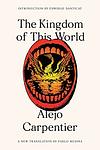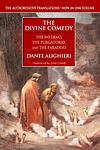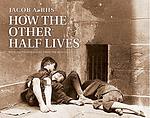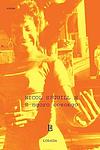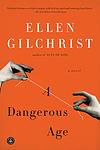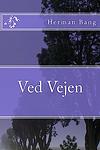The Greatest Danish, Cuban Books of All Time
Click to learn how this list is calculated.
This list represents a comprehensive and trusted collection of the greatest books. Developed through a specialized algorithm, it brings together 300 'best of' book lists to form a definitive guide to the world's most acclaimed books. For those interested in how these books are chosen, additional details can be found on the rankings page.
Genres
Countries
Date Range
Reading Statistics
Click the button below to see how many of these books you've read!
Download
If you're interested in downloading this list as a CSV file for use in a spreadsheet application, you can easily do so by clicking the button below. Please note that to ensure a manageable file size and faster download, the CSV will include details for only the first 500 books.
Download-
1. Fairy Tales and Stories by Hans Christian Andersen
This collection of stories offers a mix of enchanting fairy tales and narratives, many of which have become universally recognized classics. The stories range from tales of whimsical creatures and magical realms to poignant narratives that explore themes of love, sacrifice, and the human condition. Some tales are light-hearted and humorous, while others are profound and thought-provoking, demonstrating the breadth and depth of the author's storytelling abilities.
-
2. Out of Africa by Isak Dinesen
The book is a memoir that recounts the author's experiences and observations living in Kenya, then British East Africa, from 1914 to 1931. It is a lyrical meditation on her life amongst the diverse cultures and wildlife of Africa. The author shares her trials and tribulations of running a coffee plantation, her deep respect for the people and land of Africa, and her intimate understanding of the subtle nuances of African culture and society.
-
3. The Lost Steps by Alejo Carpentier
The novel tells the story of a disillusioned American musicologist who leaves his life in New York City to embark on a journey to an untouched, primitive part of the Amazon jungle in South America. He is in search of ancient musical instruments. Along the way, he experiences a spiritual and philosophical transformation as he reconnects with nature and the primal roots of humanity. He also falls in love with a native woman, further deepening his connection to the land and its people.
-
4. Three Trapped Tigers by Guillermo Cabrera Infante
Three Trapped Tigers is a novel that explores the nightlife, culture, and history of Havana, Cuba, during the 1950s. The narrative is fragmented and experimental, employing a range of styles and techniques, including stream-of-consciousness, wordplay, and parody. The book presents a vivid and humorous depiction of the city and its inhabitants, while also offering a critical examination of the political and social conditions of the time.
-
5. The Kingdom of This World by Alejo Carpentier
"The Kingdom of This World" is a historical novel that explores the tumultuous period of the Haitian Revolution and its aftermath through the eyes of a slave named Ti Noël. The narrative weaves together elements of magical realism and historical fact, highlighting the brutalities of slavery, the struggle for freedom, and the rise and fall of leaders. The novel also delves into the themes of power, corruption, and the cyclical nature of history, while showcasing the rich culture and folklore of Haiti.
-
6. Smilla's Sense of Snow: A Novel by Peter Høeg
The novel revolves around Smilla Jaspersen, a woman of Greenlandic-Inuit and Danish descent living in Copenhagen, who investigates the mysterious death of a small Inuit boy who falls from the roof of their apartment building. Despite the authorities ruling it as an accident, Smilla's understanding of the Arctic snow and ice, her intuition, and her relentless pursuit for truth lead her to uncover a much darker, dangerous conspiracy involving powerful corporations and government agencies.
-
7. Fear and Trembling by Soren Kierkegaard
"Fear and Trembling" is a philosophical work that explores the concept of faith, drawing upon the biblical story of Abraham and his willingness to sacrifice his son Isaac. The author uses this story to delve into the paradox of faith, arguing that true faith requires a willingness to make personal sacrifices that may seem absurd or irrational to others. The book challenges conventional notions of morality and ethics, suggesting that faith may sometimes require actions that go beyond the bounds of societal norms.
-
8. Before Night Falls by Reinaldo Arenas
"Before Night Falls" is an autobiographical work that chronicles the life of a young Cuban man growing up during the political turmoil of the Cuban Revolution. The protagonist, a rebellious writer and poet, grapples with his sexual identity in a society that is deeply homophobic. Despite facing persecution, imprisonment, and exile, he remains defiant and committed to his art and personal freedom. His story provides a candid and deeply personal perspective on the harsh realities of life under Fidel Castro's regime.
-
9. Either Or by Soren Kierkegaard
"Either Or" is a philosophical work that explores the concept of existentialism through the lens of two contrasting life views: the aesthetic and the ethical. The aesthetic life is characterized by immediate pleasure and enjoyment, while the ethical life is defined by moral duty and responsibility. The book presents these two perspectives through the fictional letters of two characters, ultimately arguing for the superiority of the ethical life. However, it also suggests that a truly fulfilled life must find a balance between the two.
-
10. Niels Lyhne by Jens Peter Jacobson
The novel is a coming-of-age story that follows the intellectual and emotional development of its eponymous protagonist, a young Danish poet who struggles with the existential dilemmas of his time. Throughout his life, he grapples with the loss of religious faith, the search for meaning in a secular world, and the pursuit of artistic truth, all while experiencing the pangs of unrequited love and personal tragedy. The protagonist's journey is one of self-discovery and disillusionment, as he seeks to reconcile his idealistic visions with the harsh realities of life, ultimately embodying the spirit of a modern, introspective individual facing the existential uncertainties of the 19th century.
-
11. Seven Gothic Tales by Isak Dinesen
"Seven Gothic Tales" is a collection of short stories set in the 19th century, each with a unique blend of humor, horror, and romanticism. The tales, steeped in supernatural elements and psychological depth, explore themes of love, betrayal, and identity. The stories are populated by a variety of characters from different social classes and backgrounds, each facing their own moral dilemmas and existential crises. The author's vivid descriptions and atmospheric settings contribute to the gothic tone of the book.
-
12. Lucky Per by Henrik Pontoppidan
The novel follows the life of Per Sidenius, a young man from a devoutly religious family, who rebels against his provincial upbringing to seek fortune and success as an engineer in the bustling world of Copenhagen. Ambitious and driven, Per dreams of freeing Denmark from its reliance on foreign energy through his innovative engineering projects. Throughout his journey, he confronts the rigid class structures of Danish society, engages in tumultuous relationships, and struggles with his own internal conflicts and existential doubts. Despite his initial rapid ascent, Per ultimately faces the consequences of his relentless pursuit of material success, leading him to reevaluate the true meaning of fulfillment and happiness in life.
-
13. Dreaming in Cuban by Cristina García
"Dreaming in Cuban" is a multi-generational narrative that explores the lives of several women from a Cuban family, spanning from the 1930s to the 1980s. The story oscillates between Cuba and the United States, reflecting on the Cuban revolution, exile, and identity. Through the perspectives of each character, the novel delves into themes of political turmoil, family dynamics, and personal struggles amidst cultural shifts and geographical displacement.
-
14. Paradiso by José Lezama Lima
"Paradiso" is a dense and lyrical novel that delves into the life of a young Cuban man named José Cemí, exploring his intellectual and sensual coming-of-age against the backdrop of early 20th-century Havana. The narrative is rich with poetic language and complex imagery, weaving together themes of family, sexuality, and the search for identity. Through a series of vivid, dreamlike episodes, the protagonist's personal growth is paralleled with the cultural and historical evolution of Cuba itself, presenting a tapestry of philosophical reflections and a deep dive into the nature of reality, time, and existence.
-
15. How the Other Half Lives by Jacob A. Riis
The book is a detailed examination of the living conditions of the poor in New York City in the late 19th century. It provides a vivid and often shocking account of life in the slums, tenements and sweatshops of the city, based on the author's own investigative journalism. The book had a significant impact on public opinion and led to changes in housing laws and social policy.
-
16. Explosion In A Cathedral by Alejo Carpentier
The novel is a historical narrative set in the Caribbean during the time of the French Revolution, following the lives of a family caught in the tumult of the era. It explores the impact of European political upheaval on the colonies, as the protagonist becomes involved with historical figures and events, including the revolutionary missions of Victor Hugues. The story delves into themes of power, freedom, and the complex interplay between history and the individuals who live through it, painting a vivid picture of the colonial world and its transformation under the forces of revolution and counterrevolution.
-
17. The Sickness Unto Death by Soren Kierkegaard
This philosophical work explores the concept of despair, which the author sees as a spiritual condition linked to the Christian concept of sin. The author delves into the human struggle to reconcile the self with the ideal self, a process he argues is only possible through a relationship with God. The book also discusses existential dread, self-awareness, and the nature of the human soul, offering a complex and thought-provoking examination of the human condition.
-
18. Anecdotes of Destiny by Isak Dinesen
"Anecdotes of Destiny" is a collection of five short stories, each with a unique exploration of human nature, destiny, and the complexities of life. The tales range from a woman who must choose between three suitors, to a young man who gambles his fortune on a single pearl, to a couple who make a pact with the devil. The stories are rich in symbolism and metaphoric language, offering profound insights into the human condition and the mysterious workings of fate.
-
19. Sóngoro cosongo by Nicolás Guillén
"Sóngoro cosongo" is a collection of poems that celebrates Afro-Cuban culture. The author explores the richness of the Afro-Cuban experience, using the language and rhythms of son music and Afro-Cuban dialect to bring his subjects to life. Themes include racial identity, social inequality, and the cultural fusion of Spanish and African influences in Cuba. The author's use of humor and satire also serves to critique the racial prejudices and social injustices of his time.
-
20. The Long Journey by Johannes V. Jensen
This novel is a sweeping historical narrative that follows the adventurous life of a young Danish man, from his humble beginnings in a rural village to his travels across the globe. Set against the backdrop of the late 19th and early 20th centuries, it explores themes of evolution, human progress, and the quest for knowledge. Through vivid descriptions and a richly detailed plot, the protagonist's journey is a metaphor for the human experience, reflecting the struggles, discoveries, and aspirations of an era on the brink of modernity. The narrative is both a personal coming-of-age story and a broader commentary on the forces shaping human history.
-
21. The Battle with the Slum by Jacob A. Riis
"The Battle with the Slum" is a historical documentation of the living conditions in the slums of New York City during the late 19th and early 20th century. The author, a social reformer and journalist, provides a detailed account of the overcrowded and unsanitary conditions that the city's poor were subjected to. The book also highlights the efforts of the government and philanthropists to improve these conditions and eradicate the slums, emphasizing the importance of housing reform and social welfare in urban development.
-
22. The Dangerous Age by Karin Michaelis
"The Dangerous Age" is a reflective epistolary novel that delves into the emotional and psychological journey of a middle-aged woman who, upon reaching her forties, confronts the societal pressures and personal disillusionments that come with aging. Through a series of candid letters, she shares her experiences of estrangement from her husband, the challenges of maintaining her identity and desires, and her struggle to navigate the expectations placed upon women of her age. The protagonist's introspective correspondence reveals the inner turmoil and liberation that accompany her quest for self-discovery and authenticity in a world that often marginalizes women as they grow older.
-
23. Early Spring by Tove Ditlevsen
"Early Spring" is a poignant autobiographical account of a young girl's coming of age in a working-class neighborhood of Copenhagen during the 1920s and 1930s. The narrative delves into the complexities of her family life, her struggles with identity and self-worth, and her passionate pursuit of writing as a means of escape and self-expression. The book captures the emotional landscape of the protagonist as she navigates the challenges of adolescence, the pressures of societal expectations, and her own burgeoning literary ambitions, all set against the backdrop of a changing Denmark. Through her introspective and lyrical prose, the story offers a deeply personal exploration of growth, resilience, and the relentless pursuit of one's dreams amidst adversity.
-
24. Ved Vejen by Herman Bang
The book is a poignant portrayal of life in a small Danish town in the late 19th century, focusing on the story of a young woman named Katinka, who is trapped in a loveless marriage to a stationmaster. Her life is marked by monotony and unfulfilled desires until she meets a dashing engineer, with whom she develops a deep, albeit platonic, relationship. The narrative delves into themes of social constraints, personal longing, and the quiet despair of everyday existence, highlighting the emotional turmoil and inner life of the protagonist against the backdrop of a rigid and unforgiving social structure.
-
25. The Diary Of A Parish Clerk by Steen Steensen Blicher
"The Diary of a Parish Clerk" is a poignant novella that takes the reader through the life of a young man in 18th-century rural Denmark, as recorded in his own diary entries. Born into modest means and serving as a parish clerk, the protagonist's life is marked by his unrequited love for a local squire's daughter, which ultimately leads to tragedy. The narrative, rich with details of Danish country life, social hierarchies, and personal struggles, is a testament to the enduring power of love and the human spirit in the face of societal constraints and personal misfortunes.
Reading Statistics
Click the button below to see how many of these books you've read!
Download
If you're interested in downloading this list as a CSV file for use in a spreadsheet application, you can easily do so by clicking the button below. Please note that to ensure a manageable file size and faster download, the CSV will include details for only the first 500 books.
Download



